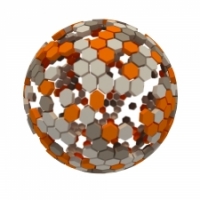Staying Net Neutral with the Internet of Things

Before long, your toaster is going to be just as powerful and connected as your phone. Everything seems to have some sort of embedded software or Internet connection associated with it—from your Google Glass to your smartwatch, down to that iPhone resting in your pocket.
This, in essence, is the “Internet of Things.” Of course, there are multiple definitions. Anders Wallgren, CTO of Electric Cloud, believes “everything in the whole world is going to have software in it pretty soon,” which is how he describes the phenomenon called the Internet of Things. Forbes, on the other hand, boils it down to the concept of connecting any device with an on and off switch to the Internet.
If things continue to trend in this direction, the Internet of Things will expand at a healthy rate. However, the progress could be stymied if President Barack Obama can’t convince the Federal Communications Commission (FCC) to double down on net neutrality and reclassify the Internet as a utility.
“To put these protections in place, I'm asking the FCC to reclassify Internet service under Title II of a law known as the Telecommunications Act," Obama said in a statement.
What does that really mean? President Obama understands that the Internet has become an indispensable part of daily life and communication. By treating all Internet traffic equally and viewing it like any other utility, Internet providers wouldn’t be able to determine where it goes and what sites are faster than others. Consumers would remain in control of how they want to use the internet, preventing companies from blocking or interfering with content that goes against corporate interests.
So, the goal is to keep the Internet as a free-flowing space to conduct a bevy of activities. But if that doesn’t happen and Internet “fast lanes” make it more difficult to access the service, what will become of the Internet of Things?
It won’t be stopped, but it could slow growth. Both supporters and detractors of net neutrality expect wearables and less-powerful devices to be mostly unaffected, since they don’t demand too much bandwidth. Fitbits or other bracelets shouldn’t lower in value, but implementing net neutrality would erase even the possibility of fast lanes leaving certain websites and services out in the cold.
For connected devices that use home broadband connections, a world where Internet service priority is given to the company with the deepest pockets could be of great concern. Without net neutrality, we could see degraded or uneven services, higher prices, and less innovation. It would be a win for those who can benefit financially, but for the rest of us who rely on the Internet for so many things in our lives, seeing fewer freedoms could be a slippery slope.

